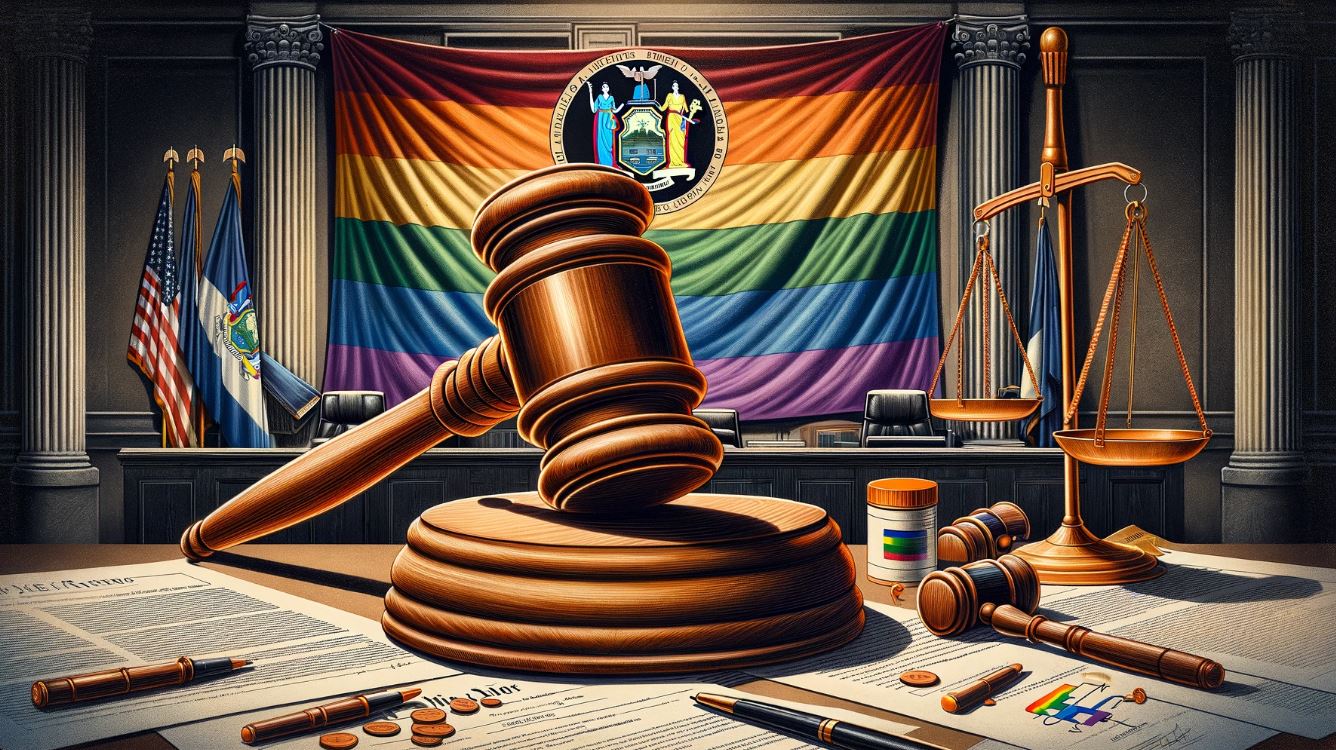Marriage law in New York court makes lesbian divorce retroactive
Landmark Ruling on Retroactive Application of Marriage Equality Law
In a pivotal decision, the Brooklyn-based New York Appellate Division, 2nd Department, determined on November 15 that the state’s Marriage Equality Law (MEL) of 2011, which authorized same-sex marriages in New York from July 24, 2011, must be applied retrospectively in the context of a lesbian couple’s 2005 religious marriage. This ruling is significant in determining if assets accumulated between 2005 and 2011 should be recognized as marital property in divorce settlements. Justice William G. Ford, writing for the unanimous four-judge panel, emphasized that this case marked a novel scenario for New York’s appellate courts.
Traditional Jewish Wedding of Lesbian Couple in 2005
The couple in question, Robin Mackoff and Linda Bluemke, celebrated a traditional Jewish wedding in 2005, officiated by a rabbi and witnessed by about 100 guests, complete with a chuppah and the signing of a Ketubah, a formal marriage contract in Hebrew. Despite living as a married couple since the ceremony, their union lacked legal status in New York at the time due to the state’s then-stance on same-sex marriages.
Shift in Legal Landscape and Retroactive Rights
The landscape shifted with the enactment of the MEA in June 2011, equating same-sex marriages with different-sex ones under New York law, followed by the landmark 2015 Obergefell ruling by the US Supreme Court, affirming same-sex marriage as a constitutional right. These developments opened debates about retroactive application of such rights, particularly in states like New York which had ceased recognizing common law marriages since the 1930s.
Dispute Over the Start Date of Marriage in Divorce Proceedings
Central to this case was whether the Mackoff’s 2005 religious marriage would be recognized under the state’s Equitable Distribution Law. When Robin Mackoff initiated divorce proceedings in January 2019, she cited their civil marriage date as July 28, 2011. Linda, in her response, did not contest this date initially but later sought to amend her answer, proposing the 2005 ceremony as the start of their marriage. This move was initially rejected by Suffolk County Supreme Court Justice John J. Leo, deeming the MEA non-retroactive and Linda’s amendment potentially prejudicial to Robin.
Appellate Division’s Decision Overturns Lower Court Ruling
However, the Appellate Division overturned this decision, highlighting that while the MEA did not explicitly endorse retroactivity, its intent to equalize same-sex and different-sex marriages and previous precedents suggested a valid retroactive application. The court ruled Linda’s argument for recognizing the 2005 marriage as meritorious and not unjust to Robin, remanding the case to Justice Leo for further deliberation.
Anticipation for Final Decision on Asset Distribution
Now, it falls to Justice Leo to assess whether the 2005 marriage holds for the purpose of asset distribution, a decision keenly awaited amidst the complex tapestry of evolving marriage laws. The legal representation in this intricate case includes Michael B Schulman and Associates for Linda, and Gilbert Balanoff for Robin, with Judges Betsy Barros, Paul Wooten, and Barry E. Warhit forming the unanimous panel alongside Justice Ford.














+ There are no comments
Add yours